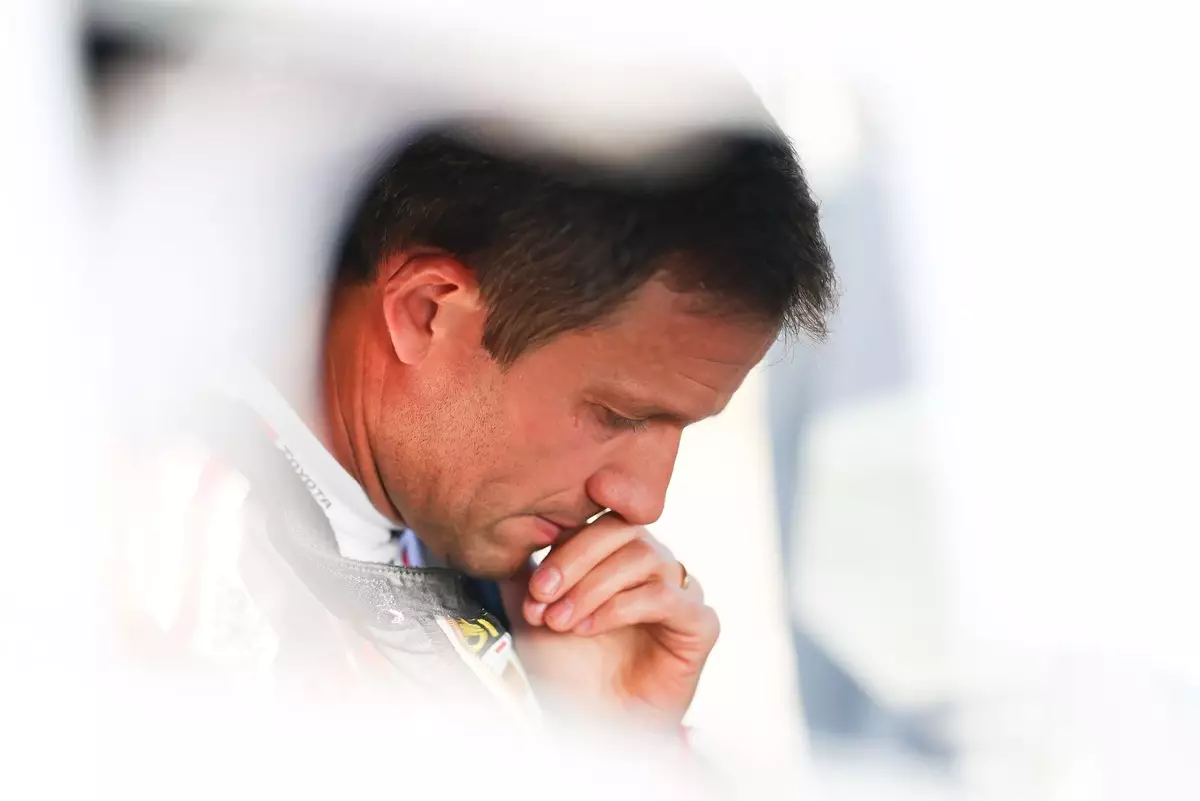Sebastien Ogier’s recent victory in Rally Portugal marks a significant milestone in an already illustrious racing career. Claiming his seventh title at this demanding gravel event not only extends his record but also highlights the relentless spirit and unmatched endurance required in rally racing. Co-driven by Vincent Landais, Ogier demonstrated remarkable skill and adaptability while facing equally formidable competition, specifically from Hyundai’s Ott Tanak, who had been leading until a mechanical failure forced him to bow out of contention. The rally tested Ogier in ways he hadn’t anticipated, challenging his physical limits and strategic acumen.
The Strain of Competition
Ogier’s candid remarks surrounding the physical toll of the rally reveal a deeper complexity within the sport itself. He noted that Saturday’s stages pushed him to a breaking point, both mentally and physically. With an intense schedule involving extensive travel and limited rest, racers like Ogier confront a dual challenge: navigating treacherous terrains while managing extreme fatigue. The lengthy stages—683 km on the first day alone—underscored the demanding nature of the event. For the drivers, there is no room for complacency; the relentless grind places significant strain on their bodies, illuminating the human side of competitive racing often overshadowed by mechanical prowess and high speeds.
The Unseen Efforts behind the Victory
What Ogier articulated clearly in his post-race reflections was also an appreciation for his team, emphasizing how the mechanics and support staff endure their own grueling efforts. The emotional weight of victory often rests not solely on the shoulders of the drivers but reverberates throughout the entire team. Ogier’s recognition of his team’s hard work offers a glimpse into the collaborative nature of rally racing. There’s an intricate web of expertise, labor, and effort that goes into a single win which usually escapes the public eye. It’s this camaraderie that often propels drivers to new heights and creates lasting bonds, transforming competition into a shared experience.
A Battle of Attrition
The competition between Ogier and Tanak was gripping, encapsulating the essence of rally racing: unpredictable, visceral, and frequently decided by mere seconds. Ogier’s victory was tinged with the knowledge that Tanak’s unfortunate power steering failure shifted the balance of the race. Despite this setback, Tanak’s ability to stage a comeback on Sunday showcased the resilience required in this brutal sport. His performance not only earned him points but also confirmed the depth of skill present in the field. Ogier’s acknowledgment of Tanak’s speed during the rally reframes the narrative of their rivalry—where one competitor’s loss is another’s gain, thereby enriching the drama both on and off the track.
The Emotional Toll of Victory
Winning under such taxing conditions brings with it a bittersweet satisfaction. As Ogier stated, the reward comes with a cost—exhaustion and the intrinsic realization of one’s limits. This contrast makes the victory sweeter, providing not just a trophy but an emotional release after relentless pressure. Ogier described how the arduous fight and subsequent victory lead to a need for recovery, further highlighting the human element of the sport. The demanding environment can strip away the facade of invincibility that champions are often typecast into. Only by acknowledging their vulnerabilities can athletes like Ogier demonstrate the true spirit of sportsmanship and resilience.
A New Age of Rally Racing
As Ogier reflected on the competitive landscape, he underscored the evolution of rally racing into a full-throttle battle from start to finish. This need for constant performance raises the stakes significantly; drivers can no longer rest on their laurels, as every second counts against fierce competitors. The shift in dynamics illustrates an exciting future for the sport where each event becomes a fight to the finish—a reality that keeps fans on the edge of their seats. Thus, Ogier’s victory at Rally Portugal is not merely a personal achievement but a symbol of the relentless, exhilarating nature of modern rally racing.

